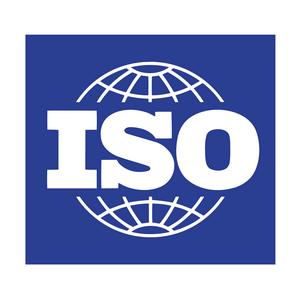1994 versions of ISO 9001, ISO 9002 and ISO 9003
The 1994 versions of the quality assurance standards ISO 9001, ISO 9002 and ISO 9003 specify three sets of quality system requirements. It can be used for external quality assurance purposes. The requirements in these external quality assurance standards are viewed as minimum good-business practices for a supplying company in any industry. The requirements are stated mainly in terms of what the supplier should accomplish, allowing considerable flexibility about how to implement a system that meets these requirements.

General Modifications
- The structure of ISO 9001 remains unchanged and the clause headings in ISO 9002 and 9003 have been aligned with ISO 9001. These headings are common to all three standards.
- Where a particular clause is not applicable to ISO 9002 or ISO 9003, this is stated in the standard. For instance, as design control is not covered by ISO 9002 and ISO 9003, both standards state that ” The scope of this international standard does not include quality system requirements for design control.
- “The clauses on purchasing, process control and servicing are not applicable to ISO 9003.
- Servicing requirements have been added to the scope of ISO 9002.
- ISO 9003 now includes additional quality system elements for contract review (sub clause 4.3), control of customer-supplied products (sub clause 4.7), corrective action(sub clause 4.14) and internal quality audits (sub clause 4.17).
- The additional requirements in ISO 9002 and ISO 9003 ensure that all three quality assurance models embrace a core set of quality assurance models embrace a core set of quality system elements (within their defined scopes) that address customer requirement evaluation and adequate demonstration of product conformity.
Common changes
The following common changes have been made in the standards :
- All procedures have to be documented.
- The purchaser is now referred to as a customer.
- Work instructions have now been merged with procedures.
- The term “quality requirements” has been charged to “quality assurance and quality system requirements”, and the term “requirement for quality” has been introduced.
Relaxation of requirements
Based on the experience gained during the application of ISO 9000 standards. The difficulties faced in their implementation, there has been some relaxation of requirements in the revised standards. These are given below :
- The standards recognize that the range and detail of documentation will depend upon the complexity of work, method used, and personnel skills and training.
- Verbal orders from customers are now recognized by the standards.
- Nonconforming products can now be accepted with an authorized concession.
- It is now recognized that the extent of the analysis of the processes involved in nonconformities. The corrective action required should depend upon the magnitude of the problem and be commensurate with the risk encountered.
- Storage areas no longer have to secure; the requirement is now only for designed storage areas.
- Quality records no longer have to be identifiable with the product involved.
ISO 9004-1 major changes
This standard is meant to help organizations design and implement a quality system so that can meet market needs and achieve overall success. The first change to be noted in the 1994 revision is that this standard is now positioned as the overall guidance standard in a set of quality management guidance and standards. This is why it is now numbered ISO 9004-1, i.e. it is part 1 of a number of standards being developed in the ISO 9004 series. The following standards on specific aspects have already been issued or are in the process of development.
ISO 9004-1 : 1994 , Quality management and quality system elements – Part 1 : Guidelines
ISO 9004-2 : 1991, Quality management and quality system elements – Part 2 : Guidelines for services.
ISO 9004-3 : 1993, Quality management and quality system elements – Part 3 : Guidelines for processed materials.
ISO 10005:1995, Quality management – Guidelines for quality plans.
DIS 10006, Quality management – Guidelines to quality in project management.
ISO 10007:1995, Quality management – Guidelines for configuration management.
The major changes in the ISO 9004-1 standard are described below.
- A subclause on quality improvement (5.6) has been added to coordinate the standards with ISO 9004-4.
- Clause 6 has been renamed ” Financial considerations of quality systems” and draws on the content of a new standard being developed on the economics of quality.
- The text on configuration management has been revised to be consistent with standard ISO 10007.
- Additional references to environmental considerations have been made.
- The diagram and description of the quality loop have been replaced with a diagram of typical life-cycle phases of a product, which is more consistent with the contents of the standard. The life-cycle phases are:
- Marketing and market research
- Product planning and development
- Process planning and development
- Purchasing
- Production or provision of service
- Verification
- Packaging and storage
- Sales and distribution
- Installation and commissioning
- Technical assistance and servicing
- After-sales and
- Disposal or recycling at the end of useful life.
